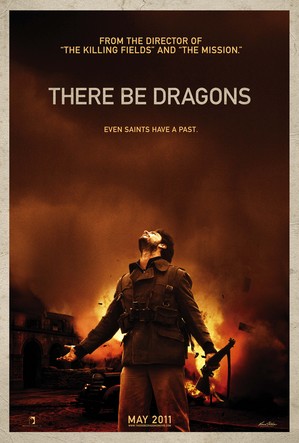There’s a film worth watching and spending time thinking about. I believe that we need to reflect upon the great themes of humanity: peace, forgiveness, love, selfishness, self-giving, regret, power, sin, and grace. Either we confront and reject nihilism and thrive, or we capitulate to it and die. We have this opportunity in Roland Joffe’s newest film, “There Be Dragons.”
Comparison’s are not always helpful. The old saying is that comparisons are odious. For many reviewers the only to make sense of “There Be Dragons” is to contrast it with “The Da Vinci Code,” and I happen to see no point in doing so. The two films are apples and oranges, if you will. Be that as it may, “There Be Dragons” is a movie on the early life of a Spanish saint, Josemaria Escrivá de Balaguer (1902-75) which mixes fact with some fiction. The historical context of the film is the Spanish Civil War with all its bloody violence, incredible strident anti-clericalism and whole scale diminishment of the human person.
“There Be Dragons” is a sympathetic film of a man who was also a priest who was intensely concerned for his own holiness and the holiness of those whom he led. Sanctity in the path proposed by Josemaria Escrivá was worked out by men and women, laity and priests, through everyday work.
“There Be Dragons” was written-directed by Roland Joffe, whose other works include “The Mission” and “The Killing Fields.” The character of Father Josemaria Escrivá is played by Charlie Cox.
David Gibson’s review of the film in the Wall Street Journal is basically OK because does has some interesting things to say about how the Church uses enthusiasm. Gibson does, however, continue to perpetuate distractions of Opus Dei detractors and uninformed, biased historians, for which I am skeptical.
A resources page for the film is superbly stocked. Visit it here.
“There Be Dragons” is being shown in major cities, even in New Haven, CT!
